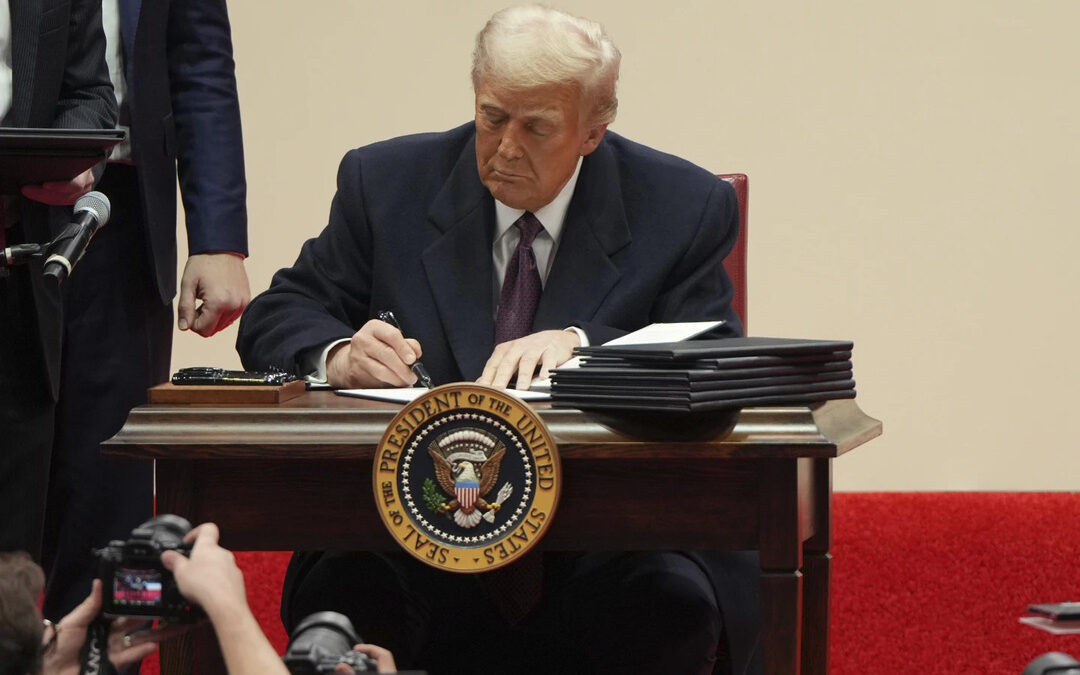Trump Withdraws US from Paris Climate Agreement, Challenging Global ESG Progress
Trump has again withdrawn the US from the Paris Climate Accord, raising concerns over global ESG goals and clean energy leadership.
Donald Trump on Monday signed an executive order directing the United States to withdraw from the Paris climate agreement for the second time, according to the Associated Press.
The news agency reported that this decision, made just hours after his second-term inauguration, distances the US from its global allies and raises concerns among environmental, social and governance advocates about the future of climate action.
The Paris Agreement, signed in 2015 by 196 nations, aims to limit global warming to 1.5 degrees Celsius above pre-industrial levels, with an upper target of keeping temperature increases well below 2°C.
Trump’s directive echoes his 2017 withdrawal announcement, which took effect in 2020 but was reversed under President Joe Biden’s administration.
Defending the Withdrawal
Trump justified the withdrawal by claiming the accord “does not reflect U.S. values” and funnels taxpayer money to nations that “do not merit financial assistance.”
He argued that the U.S.’s ability to balance economic growth with environmental protection serves as a superior model for the world.
Speaking to the AP, Laurence Tubiana, CEO of the European Climate Foundation and a key architect of the Paris accord, called the decision “unfortunate” but emphasized the resilience of global climate initiatives.
“The economic momentum behind the clean energy transition is unstoppable,” Tubiana said, highlighting projections from the International Energy Agency that forecast the global clean energy market will triple to $2 trillion by 2035.
A Turning Point for ESG Leadership
The move raises significant questions about the US role in the ESG space, especially as clean energy investments surge worldwide. The Biden administration had committed to a 60 percent reduction in U.S. greenhouse gas emissions by 2035, aligning with international targets.
Trump’s withdrawal could hinder the nation’s progress toward these goals and its ability to capitalize on growing opportunities in renewable energy, sustainable infrastructure, and green innovation.
Gina McCarthy, former White House climate adviser under Biden, stressed the economic implications of the decision. “If Trump truly wants America to lead the global economy, become energy independent, and create good-paying jobs, he must focus on growing our clean energy industry,” McCarthy told AP.
Global Implications
Despite Trump’s stance, experts note that global climate action remains robust. Alden Meyer of E3G, a European climate think tank, pointed out that no other country has followed the US lead in leaving the Paris Agreement. Instead, many nations have reaffirmed their commitments to emission reductions, joined by private-sector stakeholders, cities, and states within the US.
The world is currently 1.3°C warmer than pre-industrial levels, with 2024 poised to set another record for global temperatures. The worsening impacts of climate change, including wildfires, hurricanes, and droughts, underscore the urgency of coordinated action.
The Road Ahead
While the withdrawal process takes one year to finalize, the ESG community remains focused on advancing sustainable practices. Investors, businesses, and local governments in the US are expected to play a critical role in mitigating the effects of the federal government’s retreat.
Trump’s decision underscores a stark divide in U.S. climate policy, presenting challenges and opportunities for ESG advocates to champion a resilient, sustainable future.

